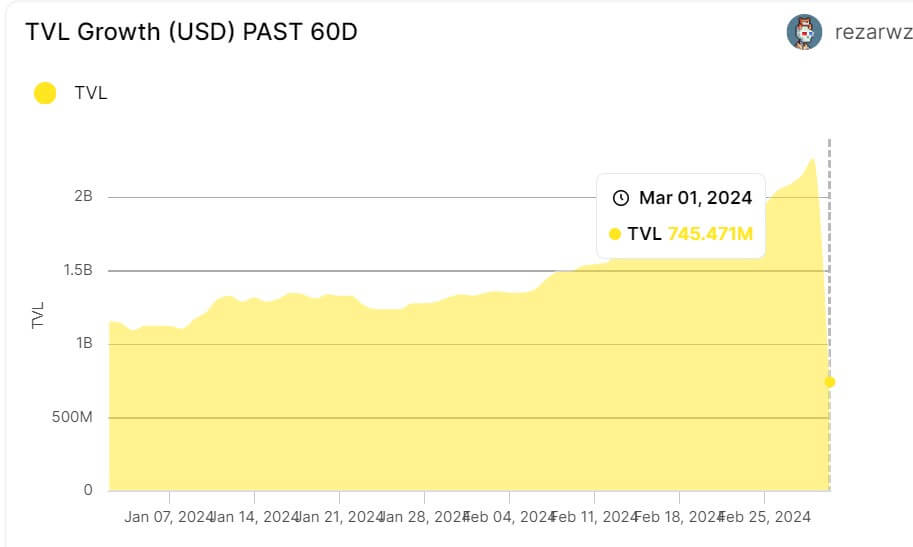Crypto buyers have swiftly eliminated their property on the Ethereum-based layer two blockchain Blast following its Feb. 29 mainnet launch.
In response to DefiLama and Flipside information, the overall worth of property locked (TVL) on the community plummeted by over 65% up to now day, dropping to $745.47 million from a peak of $2.27 billion.

Final yr, Blast enticed group members to lock up their Ethereum and stablecoin property, providing as much as a 5% annual proportion yield generated from staked ETH and real-world asset protocols.
The attract of excessive yields and potential airdrops incentivized group members to take part. Nonetheless, this transfer drew criticism from crypto stakeholders, who identified that customers couldn’t withdraw their property till the mainnet launch.
With the profitable mainnet launch, customers have shortly withdrawn their caught property, resulting in the fast decline in TVL.
Regardless of this setback, Blast continues its operations, boasting over 1 million whole transactions on the community and witnessing the launch of a number of new decentralized purposes.
Phishing websites on rampage
In the meantime, malicious actors have exploited Blast mainnet launch to proliferate phishing websites mimicking the layer2 community’s official platform.
Net 3 safety agency Rip-off Sniffer disclosed two cases the place people fell sufferer to those schemes, leading to a mixed loss exceeding $5 million in digital property.
In a single case, a person suffered a lack of $4.39 million, comprising $ALI and $PUSH tokens, after interacting with a fraudulent Uniswap Permit2’s Allow Batch message.
One other person encountered the same destiny, shedding $717,817 price of Aave BTC and Pandora tokens by way of an airdrop phishing website.
These incidents prompted Rip-off Sniffer to concern a stark warning:
“There are too many phishing websites impersonating Blast! It’s time to remind you as soon as once more that clicking on hyperlinks in Twitter feedback is harmful.”
Blast additionally echoed this sentiment, urging its group to train vigilance towards scammers and completely depend on official documentation for accessing block explorers, RPCs, and different chain-related data.

